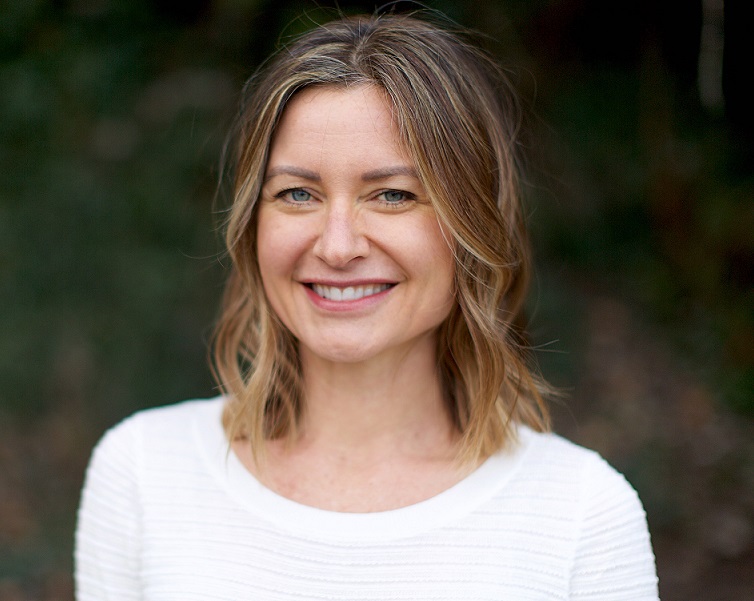
In the three years Jennifer Atkinson has been teaching her popular Eco-Grief and Climate Anxiety seminar, she has had more and more students, educators and activists asking her how to help students cope with feelings of environmental loss.
Don’t expect them to uncouple their intellects from their emotional lives, she advises, as students wrestle with existential threats like climate disruption and mass extinction.
Research shows that emotion is central to the ability to learn and think creatively and to connect material to personal experiences, she said.
“When students come into our classrooms, they bring not only their intellects but also their emotions and lived experiences. Leaving those aspects at the door simply isn’t possible for most of us, and it also runs contrary to how students actually process information,” Atkinson said.
For nearly the past year, the senior lecturer in UW Bothell’s School of Interdisciplinary Arts & Sciences has been on sabbatical taking on speaking engagements to communicate this message to larger audiences. She also started a podcast called Facing It and recently helped organize a global teleconference, An Existential Toolkit for Climate Educators, to address issues related to environmental loss.
Facing it

Atkinson’s contribution to the toolkit includes her podcast “about love, loss, and the natural world.” She is writing and narrating the first half-dozen episodes and plans to continue it with interviews and new material.
“This podcast explores the emotional burden of climate change and why despair leaves so many people unable to respond to our existential threat,” said Atkinson.
Some faculty members elsewhere have made the podcast an assignment, easily accessible by students stuck at home. And it’s finding a broader audience online.
“I’m continually stunned by the diversity of people interested in this topic and the sheer numbers,” said Atkinson.
She has received emails from wildfire evacuees in Australia, religious leaders in Europe, youth climate strikers and people who have no identification with the climate movement “but are feeling tremendous anxiety in their own lives and who have come across the podcast and suddenly there’s a name and a description to this condition they are experiencing,” she said.
Creating student community

Atkinson has been teaching environmental humanities at UW Bothell since 2009. Climate anxiety became more widely recognized after a 2017 report from the American Psychological Association, “Mental health and our changing climate: Impacts, implications and guidance.” It recognized that young people are feeling overwhelmed by environmental degradation and uncertainty about the future, Atkinson said.
Atkinson next teaches Eco-Grief and Climate Anxiety in the coming winter and spring quarters. Students need to learn they’re not alone, she said.
“The sense of community is so essential to what students take away from that seminar. There’s a sense of solidarity and community that’s part of it, and that is central in translating their anxiety into action,” said Atkinson.
Gathering the educators

With two others, Atkinson convened the toolkit teleconference through the Rachel Carson Center for Environment and Society at Ludwig Maximilian University. Originally planned as a week-long conference in Munich, it was turned into a webinar over several days in early July because of the coronavirus pandemic. About 100 participants joined from around the world.
The other organizers were Sarah Ray, an associate professor at Humboldt State University and author of “A Field Guide to Climate Anxiety: How to Keep Your Cool on a Warming Planet,” and Elin Kelsey, an adjunct faculty member at the University of Victoria in Canada.
The webinar opened with participants interacting with a panel of scholars, separately located in California, Hawaii, Canada, Finland and Shanghai. Smaller breakout sessions on the following day accommodated people in different time zones.
Taking action long-term
Networking was a key goal of the conference. So was providing tools for inspiration and action through the educational toolkit, which includes videos, poetry, documentaries and discussion prompts. The open access library of resources and best practices also includes voices and perspectives from mental health professionals, writers and artists.
“The challenge for educators these days is not how to convince students that climate change is happening or inform them about the scale of this ‘wicked problem’ of our time. Gen Z and millennials are painfully aware of the scale of this crisis and deeply concerned about its impact on their futures,” Atkinson said.
“Our challenge instead is to ensure that those students have the emotional resilience to engage in the work that will be required for the long haul.”



